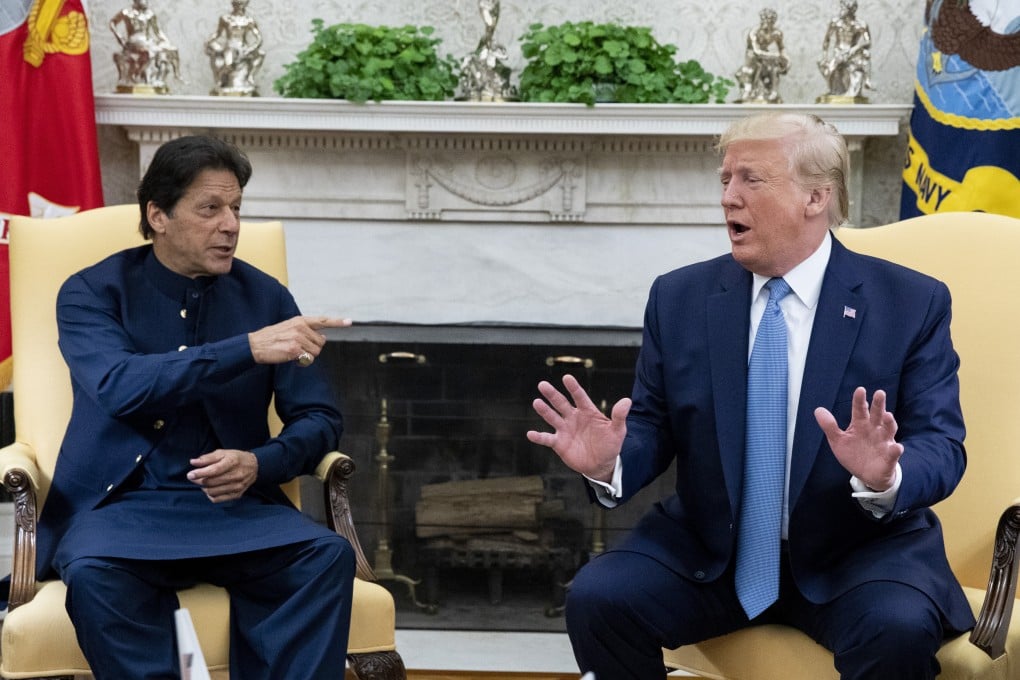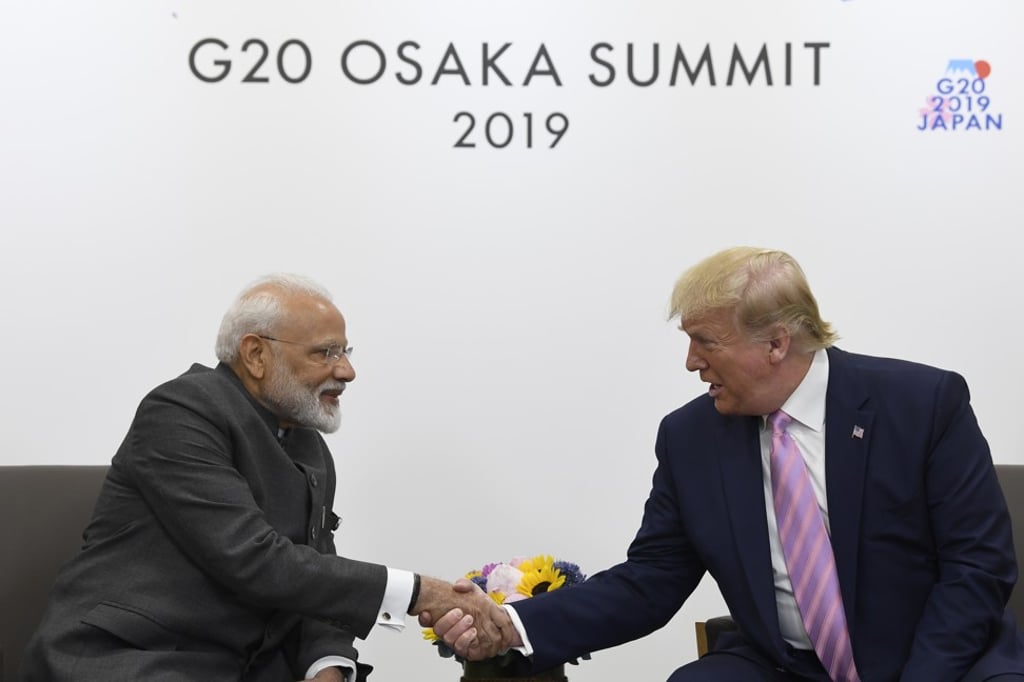Advertisement
Donald Trump says Narendra Modi asked him to mediate on Kashmir. India denies making the request
- US president also claimed he could end Afghanistan war in a week but does not want to ‘kill millions of people’
- He also suggested Pakistan could use its influence with the Taliban to help the US ‘extricate’ from Afghanistan
Reading Time:5 minutes
Why you can trust SCMP

India on Tuesday denied that Prime Minister Narendra Modi asked US President Donald Trump to mediate the decades-long Kashmir conflict with Pakistan, emphasising that third-party involvement is unnecessary.
Trump made the claim on Monday while speaking from the Oval Office where he hosted Pakistan’s Prime Minister Imran Khan.
The president said that, during a meeting in Japan last month, Modi had asked: “‘Would you like to be a mediator, or arbitrator’ [on Kashmir]?”
Advertisement
“If I can help, I would love to be a mediator,” said the president, who prides himself on being a deal maker. “Right now there’s just bombs all over the place. They say everywhere you go you have bombs and it’s a terrible situation … If I can do anything to help that, let me know.”
Advertisement
Trump’s claim triggered a political storm in India, which has long bristled at any suggestion of third-party involvement in tackling Kashmir, a Muslim-majority region it considers as an integral part of the country.
Foreign Minister Subrahmanyam Jaishankar, who was part of the Indian delegation at the G20 meeting in Japan where Trump and Modi met, told agitated lawmakers that Modi did not seek any help from Trump over Kashmir.
Advertisement
Select Voice
Select Speed
1.00x
